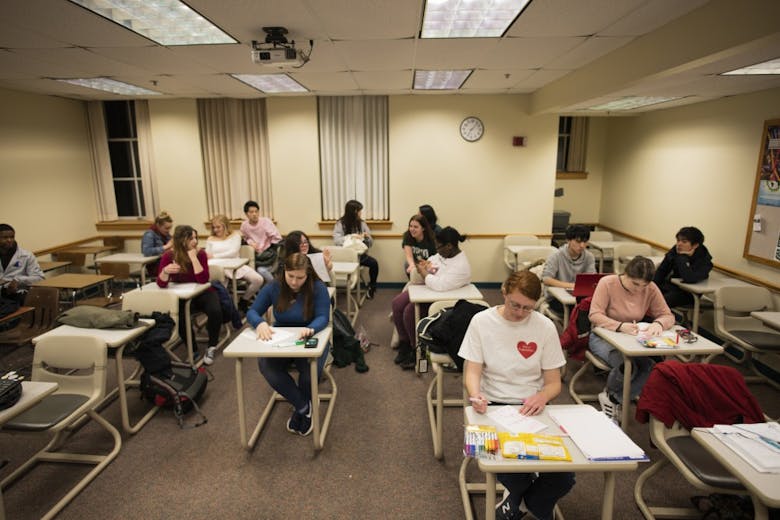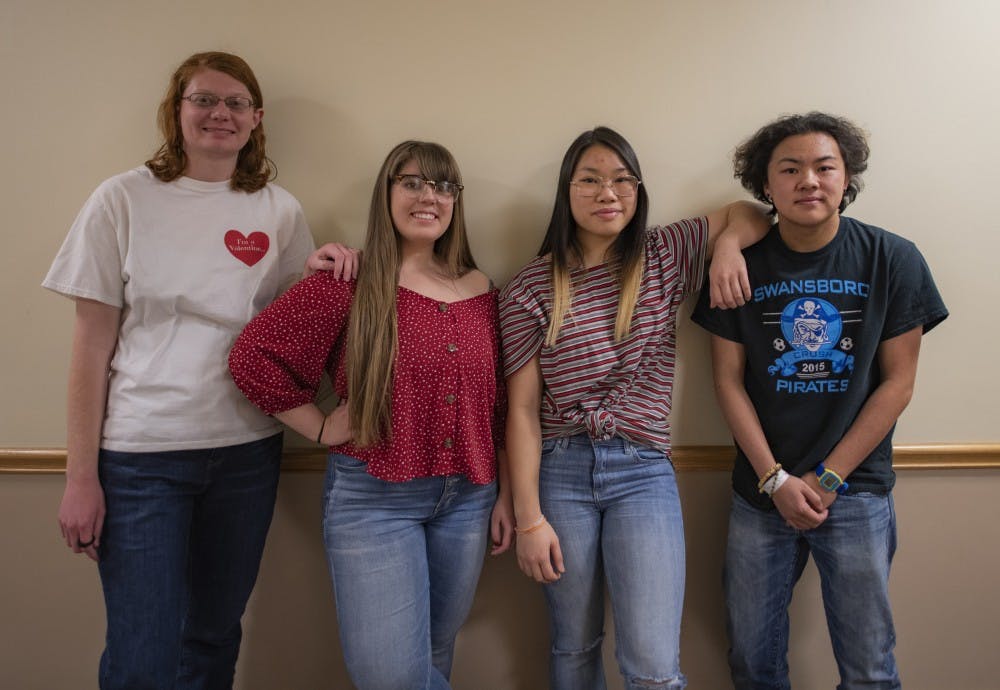The Ohio University Japanese Language and Culture Association (JLCA) has been hosting culture hours for years now.
The Japanese Culture Hours happen Thursdays at 7 p.m. in Gordy Hall 104. The organization creates a conversation between the Japanese exchange students and club members who are from the U.S. Many of the Japanese exchange students involved are students of OU’s sister university, Chubu University, near Nagoya, Japan.
“The club is a combination of Japanese students that study abroad here every semester.” Kayla Chanthavong, a junior studying linguistics and the treasurer of JLCA, said.
Educating students and dismantling stereotypes about Japanese culture is the main focus for JLCA, said Casper Swansiger, a junior studying psychology and the president of JLCA.
“A lot of the people coming, their experience with Japanese culture comes from anime and manga, so they don't understand the full reality,” Swansiger said. “Some of them do, some of them have gone to Japan and immersed themselves in the experience.”
Victoria Ginty, a graduate student studying East Asian studies and a member of JLCA, said many times, Japanese culture can be reduced to just anime, sushi and cartoons. But there is a rich culture to explore within the country, and JLCA strives to explore that culture through videos and exchange students experiences from Japan.
“We are trying to introduce something beyond anime and manga, and that’s not all that Japanese culture has to offer,” Ginty said. “But, I also think we’re looking at how Japanese culture has had influences everywhere else.”
The club offers many opportunities in addition to the culture hours Thursdays. This semester, the group will be hosting a Sakura picnic, which will include traditional Japanese music and food. Many food influences attributed to Western culture actually have roots in Japan. Ginty said culinary artists will travel to Japan and bring those influences to places like Paris.
Ginty said the organization wants to provide OU students with the opportunity to broaden their horizons outside of Western culture.

Club members write and draw Valentines for each other at the culture hour on Thursday, Feb.14.
“It's an interexchange of cultures that we are helping students see that their world is connected, that its not small, but it's definitely much larger than we expect,” Ginty said.
JLCA wants to introduce not only a new cultural experience for the students attending the meetings, but also start a conversation about the differences between the Japan that appears in media and the authentic, vibrant Japan.
“We are trying to spread the knowledge and greatness that is Japanese culture,” Sara Derrick, a junior studying communication and a member of the club, said.






